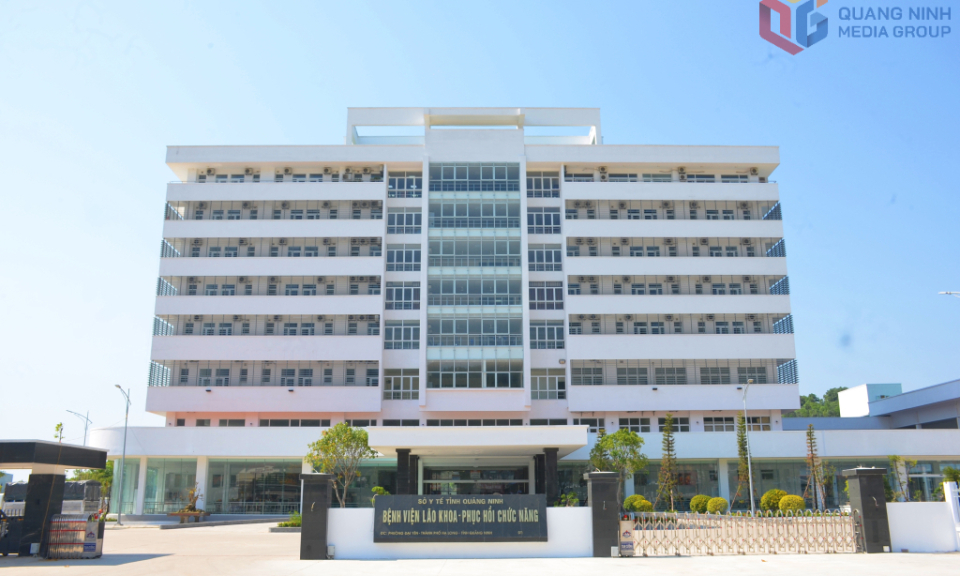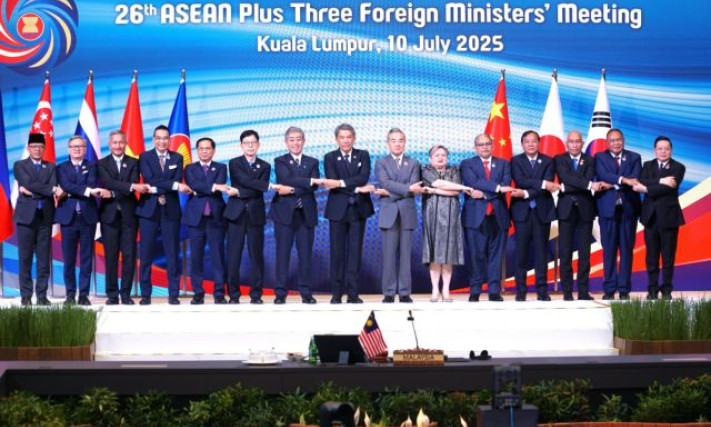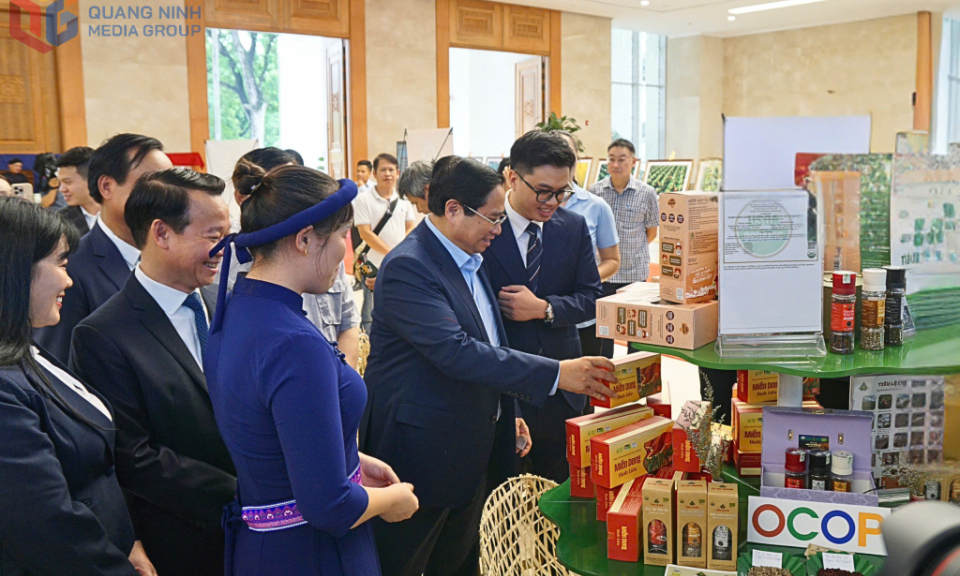Vạn Phúc silk village aspires to join the World Creative Cities Network for crafts
As part of Hà Nội’s drive for global integration, the Vạn Phúc silk village has been nominated by the World Crafts Council for inclusion in the World Creative Cities Network for crafts.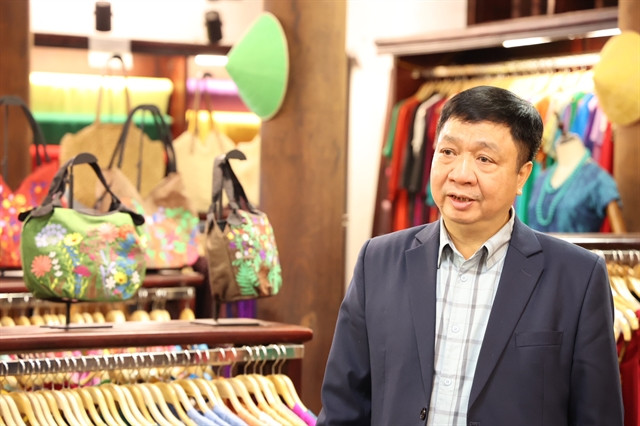
Nestled in Hà Nội's Hà Đông District, Vạn Phúc Village has been celebrated for centuries for its silk-weaving tradition.
Now, as part of Hà Nội’s drive for global integration, the silk village has been nominated by the World Crafts Council for inclusion in the World Creative Cities Network for crafts.
This effort is set to raise the village’s standing internationally, ensuring its sustainable growth while preserving its distinct cultural identity.
The artisans of Vạn Phúc have long been renowned for their skill, producing silk from locally sourced natural fibres. Known for its lustrous sheen and delicate texture, Vạn Phúc silk has remained popular over generations.
Nearly 300 households in the village are currently involved in weaving and trading silk products.
In recent years, the Silk Street area has been thoughtfully arranged to create a memorable shopping experience, offering new designs, handicrafts and fashionable items that continue to attract visitors.
Vạn Phúc artisans have recognised the importance of preserving the unique character of their silk products in the face of rapid change.
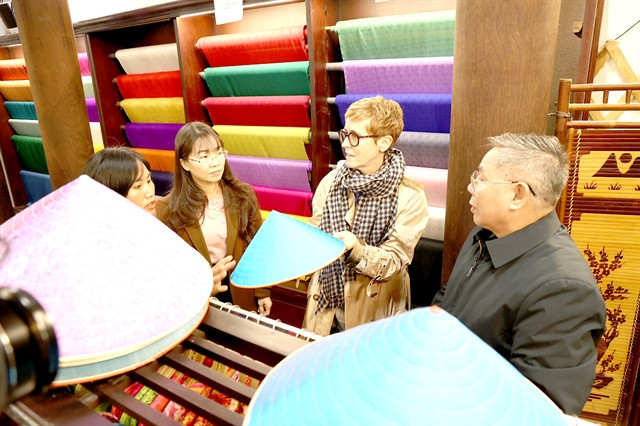
In response, they have gradually revived traditional weaving techniques, producing high-quality, authentic silk products.
“To protect our brand, products crafted by association members now carry a distinctive hallmark, assuring quality and drawing interest from domestic and international customers alike,” explains Phạm Khắc Hà, President of the Vạn Phúc Craft Village Association.
Each resident of Vạn Phúc shares a deep commitment to their village’s heritage.
Artisan Nguyễn Thị Tâm, who heads the Triệu Văn Mão Silk Weaving Workshop, belongs to the only family in Vạn Phúc with two generations of artisans.
Despite being the daughter-in-law of master artisan Triệu Văn Mão, she is dedicated to preserving her family’s legacy.
“My love for the craft drives me to preserve and develop this tradition," she said.
"While keeping our beautiful traditions alive, I’m also introducing innovations, researching new techniques and using modern methods to meet fashion trends and consumer demands both locally and globally.”
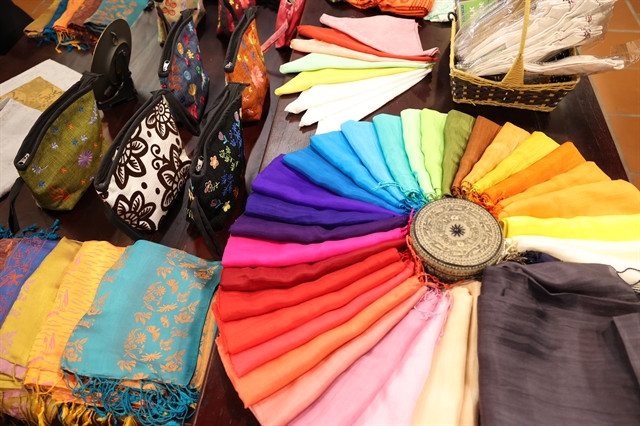
To bolster tourism, local authorities have developed a network of silk streets featuring supporting industries, such as food streets, an ornamental plants street, an antiques exchange and options for accommodation and shopping.
Additionally, the Vụn Art Cooperative has been established to create income for disabled artisans by using silk offcuts to craft silk paintings for export.
Nguyễn Văn Chí, director of Hà Nội’s Rural Development Sub-Department, said that Vạn Phúc residents take pride in their traditional values and see it as their duty to preserve and pass them on.
However, he acknowledges that to remain relevant on the global stage, the village must develop new designs that appeal to international tastes, thereby strengthening exports and enhancing its reputation.
In line with Hà Nội’s efforts to preserve local craft villages, the city has partnered with French consultants to restore Vạn Phúc silk village as a living museum.
This project aims to showcase artefacts and cultural relics that span the village’s rich history, drawing in visitors interested in its cultural heritage.
Recently, a team from the World Crafts Council conducted a survey in Vạn Phúc to evaluate its candidacy for the Creative Cities Network.
After several days of visits, Aziz Murtazaev, president of the World Crafts Council's Asia-Pacific Region, praised the village’s distinct cultural heritage and the innovative craftsmanship of its artisans.
He also commended artisan Đỗ Văn Hiển for his work in developing a digital brocade card, which has significantly benefitted the local weaving community.
Gaining membership in the World Creative Cities Network would give Vạn Phúc Silk Village unprecedented opportunities for global trade, sustainable development, and an enhanced reputation as a producer of world-class silk.

